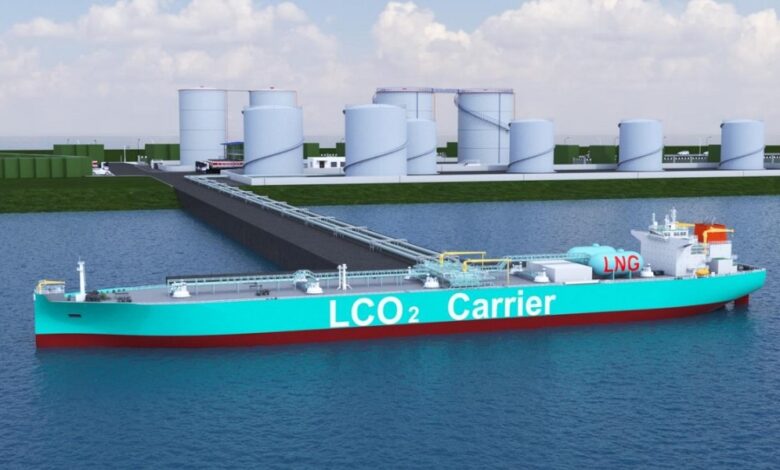MOL forms carbon capture and storage partnership in Bahrain

Japanese shipowner Mitsui OSK Lines has teamed up with Bahrain’s Bapco Energies to develop a cross-border carbon capture and storage (CSS) project.
Under a memorandum of understanding, the two companies will work towards establishing a CCS value where MOL would be responsible for shipping of liquefied CO2 and Bapco would provide the sequestration sites.
The scheme, revealed in Dubai, outlines collaboration on separation, capture, transport, injection and storage of CO2. The studies will focus the potential markets in Asia Pacific regions, as well as on the estimated cost of CO2 for using the permanent storage owned and operated by Bapco Energies in Bahrain, including the receiving cost of CO2 at the receiving terminal, and the unit cost of liquified CO2 transportation by ship.
“We believe there is a significant synergy in our cooperation to create CCS value chain, also to become a bridge between the Kingdom of Bahrain and Asia-Pacific regions,” said Takeshi Hashimoto, president and CEO of MOL.
Bapco recently concluded a study confirming that Bahrain’s CO2 storage capacity exceeds its needs to meet its net-zero target by 2060.
“This opened exciting opportunities for us, including the development of cross-border CO2 transportation and storage. This collaboration with MOL underscores our unwavering dedication to achieving a low-carbon future in line with the Kingdom of Bahrain’s climate targets,” added Mark Thomas, Group CEO of Bapco Energies.
MOL entered the business of transporting liquefied CO2 by sea in March 2021 when it invested in Larvik Shipping, which has managed industrial liquefied CO2 vessels in Europe for over 30 years. Since then, the company has been looking to develop larger ships to facilitate the needs of this growing sector. The shipowner has also teamed up with Chevron to study the feasibility of transporting liquified CO2 from Singapore to permanent storage locations offshore Australia.
In June this year, MOL and Malaysia’s state energy firm Petronas showcased the results of their joint efforts aimed at shipping and storing liquified CO2. The duo, in collaboration with Shanghai Merchant Ship Design & Research Institute (SDARI), has developed and secured approval in principle for liquefied CO2 carriers and a floating storage and offloading (FSO) unit. Most recently, Japan’s largest shipowner by dwt, joined forces with fellow energy firm Cosmo Oil to explore shipping opportunities for carbon dioxide.
